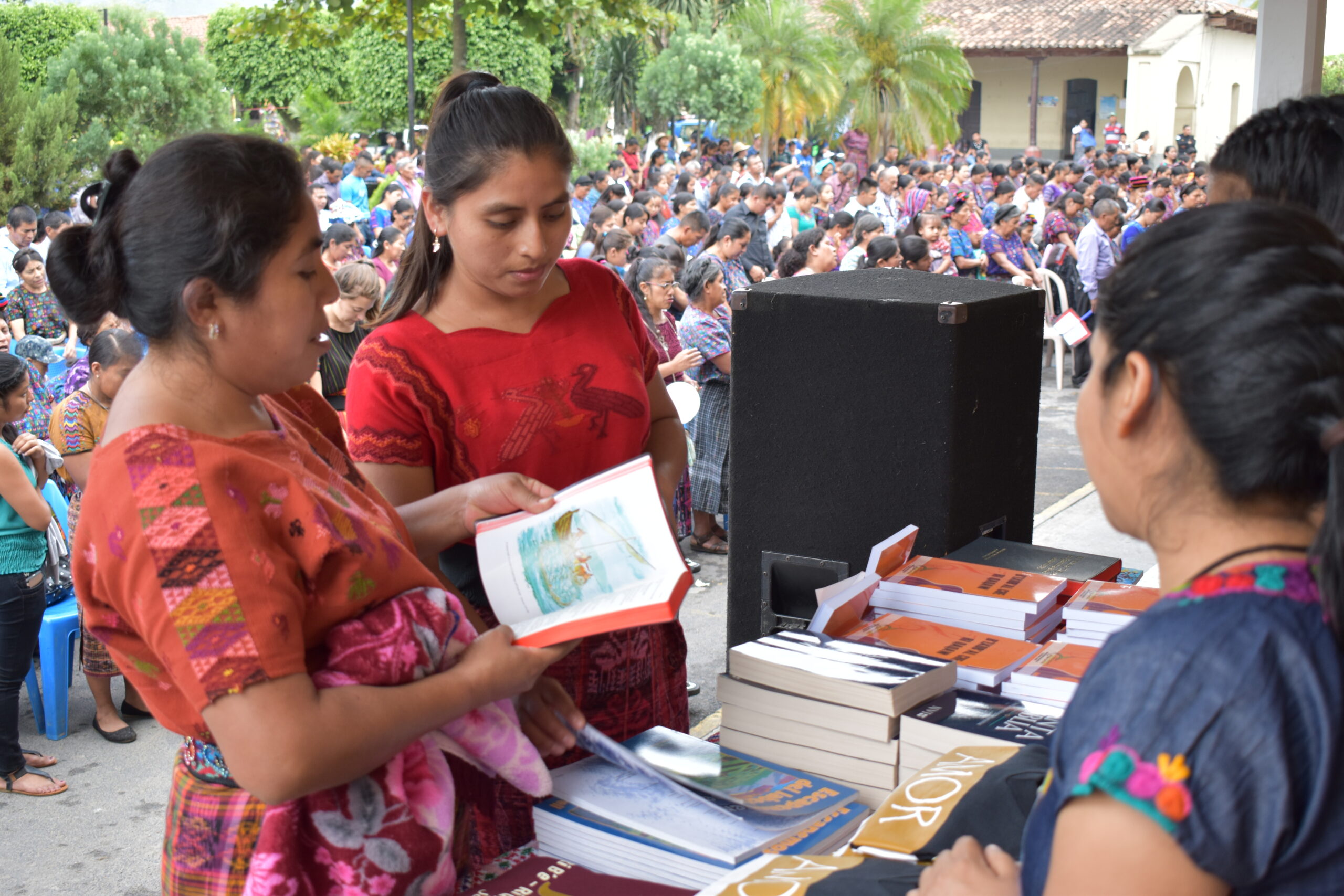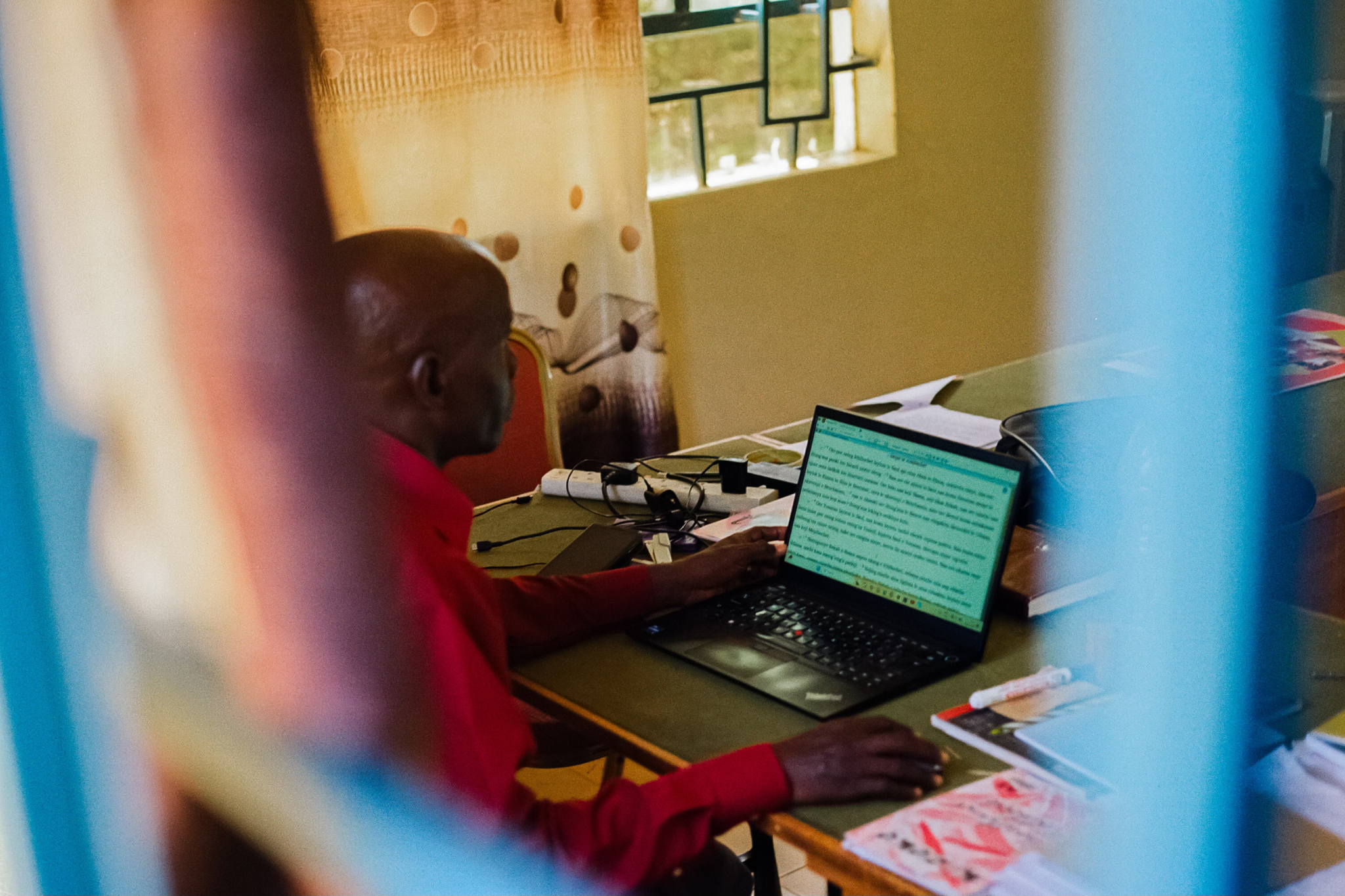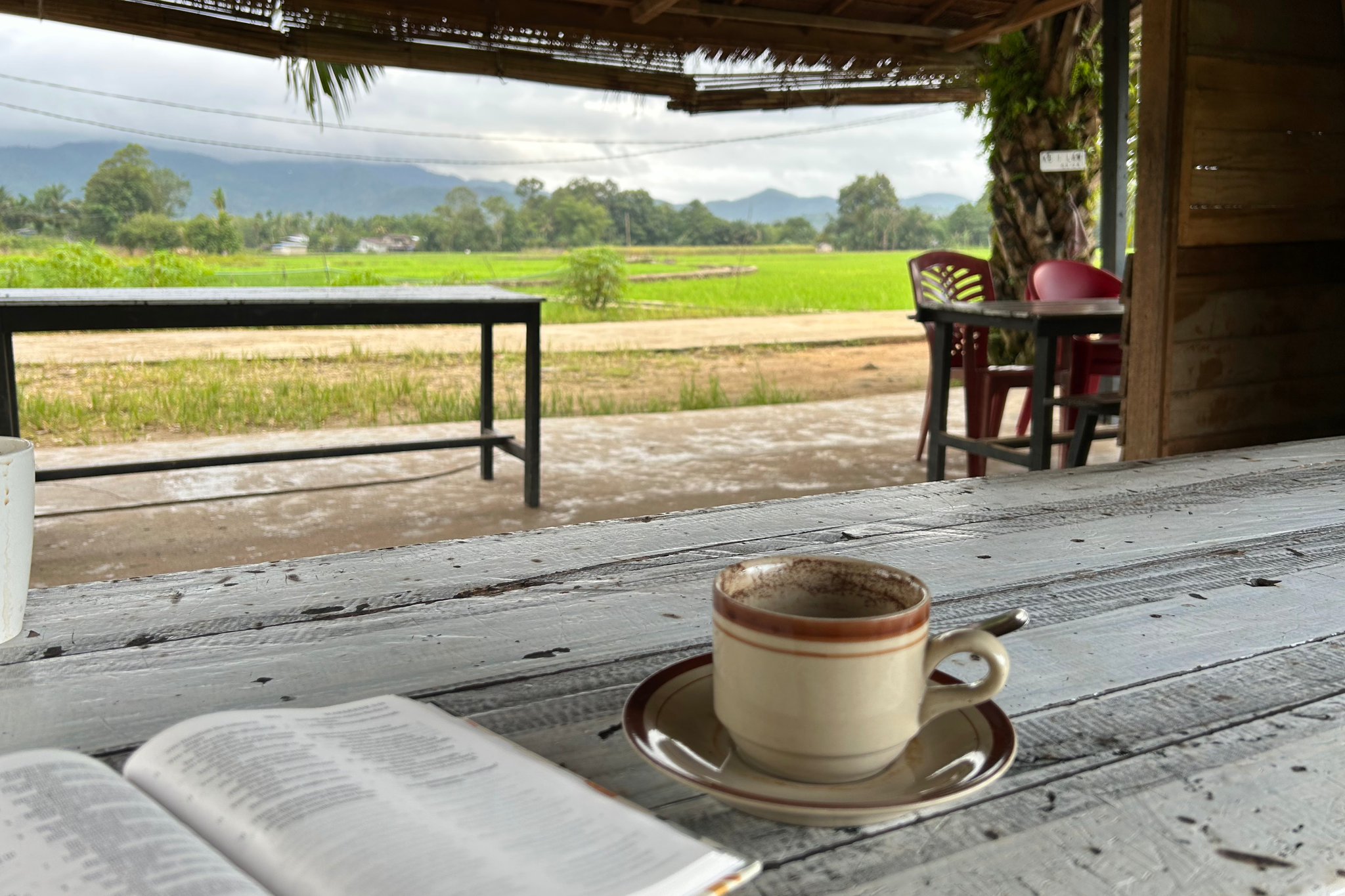Sometimes, languages in a geographic region are similar enough to warrant collaboration in translation work. However, they’re still different enough to need their own specific translations.
That’s where the cluster project shines.
A cluster project is formed when translators working with related languages collaborate to share resources, translation insights, and expertise.
Since Seed Company piloted the use of cluster projects in 2011, the method has also been adopted by a number of Bible translation organizations.
How Does a Cluster Project Work?
In a cluster project, translation teams who are working with related languages cooperate and share resources. As a result, each people group receives Scripture faster than if they worked separately.
The approach was first introduced to several language groups in Guatemala who were translating Old Testament books. Dedicated SIL consultants collaborated with the field partner to execute the plan. By working together, the translation teams were able to get their projects done in roughly half the amount of time it would have taken for each team to work independently!

8 Benefits of Cluster Projects
1. Multiplying the Effectiveness of God’s People
Currently, we have a shortage of experienced trainers and consultants to adequately meet translation commitments. If we want to see translation projects begin by the year 2025 in all the languages that still need one, new projects must continue to accelerate. In response, trainers and translation consultants need to multiply their efforts by working across a larger number of projects at the same time. Cluster projects offer an ideal setup for this diversified work.
2. Solving Linguistic Challenges Faster
If the structure and vocabulary of the languages are similar, then the typical kinds of challenges and pitfalls inherent in any translation project can be solved at the same time over a larger number of languages. Translators can also more easily adapt their work from one another. As a result, everyone works for each other, and not just for themselves—reducing the time it takes to complete a New Testament.
Don’t look out only for your own interests, but take an interest in others, too. — Philippians 2:4 (NLT)
3. Improving Quality
Translators, like writers, need broad input from others to help them see where their work is weakest and confirm where it is strongest. Once translators learn to trust one another, they can benefit by comparing their texts with others in a cluster project. This process improves the quality of all the translations in the cluster.
4. Building Local Capacity
Cluster projects naturally encourage opportunities for mentorship. One person might be mentored to become a facilitator of other cluster projects. Another person might learn how to check other translators’ work, and in so doing, gain experience in becoming a translation consultant. Finally, some who are good managers can train translators on other teams to manage their projects well.
5. Using Financial Resources More Effectively
Resources are limited, but clusters allow for limited staff to work with multiple languages at the same time. They can even visit multiple teams during one visit so they don’t have to take as many trips. Clustering enables us to be better stewards of both time and money.
6. Online Networking
Relationships are built when teams meet face to face. While apart, translation teams can also work on Zoom to keep their collaboration going. Consultants and trainers can continue to assist the translators between workshops, accelerating completion of the work.
7. Unifying the Body of Christ
When multiple people groups rally around a common goal, and God’s Word is at the center of it, unity is strengthened and, in many cases, restored. The words of one Nigerian bishop testify to this beautiful by-product of translation work:
“In the past, there have been serious conflicts between some of the ethnic groups. Despite this, the translators from all the languages work very happily together, coming to respect and appreciate each other’s cultures more. It is our prayer that the translations they are working on will foster peace and unity throughout the region.”
8. Affirming the Worth of the Marginalized
Finally, cluster projects enable smaller language groups of only a few thousand or even a few hundred speakers to bind together for added support.
Through a cluster project in his area of Southeast Asia, one speaker of a language called Ampiri discovered that “God also loves the Ampiri people, even though we are just a small people group.” Some who spoke a language in Zambia that others thought wasn’t a “real language” worthy of having its own writing system realized, “We no longer need to feel ashamed. Now we know our language has status and dignity.”
The Task That Remains
None of the remaining Bible translation work is easy, however. Many language groups, even when clustered together for greater support and efficiency, still require incredible courage, perseverance, and determination to reach.
Meet one translation consultant who risked his life daily to bring God’s Word to the six languages of the Misaje Cluster:
Read Stories about Cluster Projects in Action
Overcoming Hurdles to Give God’s Word in Southeast Asia
Women, Once without Voice in Their Communities, Share the Gospel
God Loves the Least of These: 3 Southeast Asian People Groups Receive New Testament




























